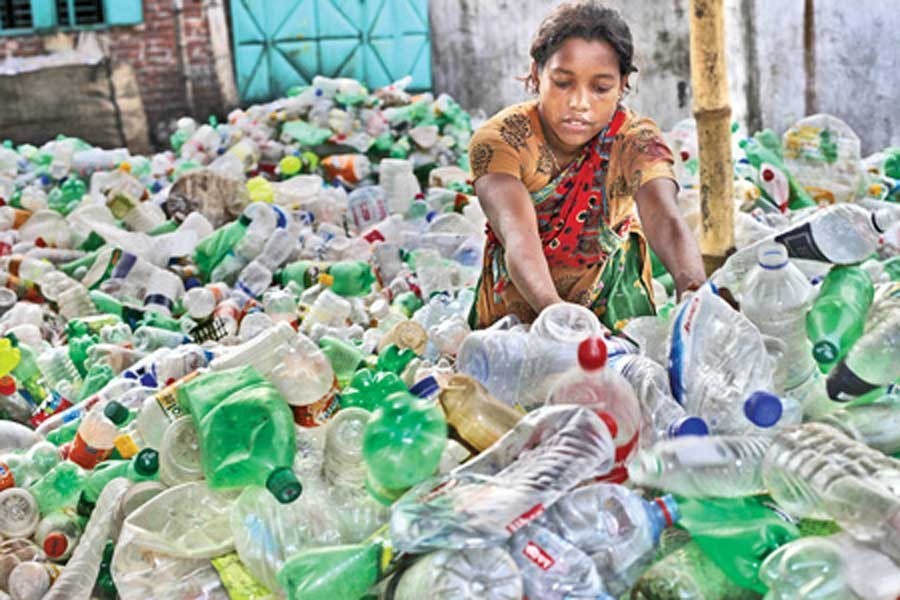
Published :
Updated :

Sector insiders and officials on Wednesday suggested proper management of plastic goods, as plastic has become a necessity and stopping its use is not a solution, particularly when it comes to environmental pollution.
Local companies also demanded that the authorities concerned address the issues of higher taxes and non-cooperation from revenue authorities, including the NBR and customs.
They said this at a “Focus Group Discussion” titled "Contribution of the Plastic Industry in the Economy of Bangladesh” held at a city hotel, organised by the Bangladesh Plastic Goods Manufacturers and Exporters Association (BPGMEA).
Stakeholders discussed the current status, challenges, prospects, and contribution of the plastic industry in Bangladesh and its role in the national economy.
Commerce Secretary Mahbubur Rahman was present as the chief guest and assured government support for sustainable business in the country by reducing barriers.
SME Foundation Chairman Md. Musfiqur Rahman was present as a special guest and said, “As we cannot avoid it (plastic), we have to manage it. Being the 12th largest plastic goods exporter in the world, Bangladesh has more to do in the sector.”
He also spoke about revising the notion of cheap labour and focusing on increasing productivity.
Mentioning that Japan has a thousand times more productivity than Bangladesh, he suggested focusing on skill development and training, as after RMG, industries like plastics have great potential.
Shams Zaman, Country Managing Partner of PWC Bangladesh, presented the keynote presentation.
In his presentation, he said that Bangladesh has over 6,000 plastic manufacturing units, with nearly 80 per cent of them being MEs and about 450 export-oriented firms. Together, these units employ an estimated 1.5 million people, offering significant livelihood opportunities, including for women in areas such as toy and packaging production.
The sector meets over 80 per cent of domestic demand, valued at almost USD 3 billion, by producing more than 2,500 types of products ranging from packaging and textiles to construction materials, household goods, and automotive components.
Some 34 local and multinational company representatives shared their opinions on business challenges and prospects in the sector in Bangladesh.
They alleged that “torture” in the name of environmental regulations is being imposed on plastic companies, adding that foreign goods imported with poly or plastic packaging face no barrier, while local companies encounter restrictions.
Hosna Ferdous Sumi, Senior Private Sector Specialist at the World Bank, spoke about mitigating the finance gap and analysing the skilled manpower gap, as industries, including plastics, would face challenges in the days ahead—particularly when it comes to adopting advanced technology and AI.
Md. Houmyoun Kabir Khan, Director of the Strategic Investment Unit at BIDA, said that citizen-level awareness is crucial to stop plastic pollution, especially in water bodies and rivers. He advocated adopting the 3R—Reduce, Reuse, Recycle—method.
He also shared the efforts of the government agency to support businesses and eliminate barriers.
BPGMEA President Shamim Ahmed chaired the event.


 For all latest news, follow The Financial Express Google News channel.
For all latest news, follow The Financial Express Google News channel.